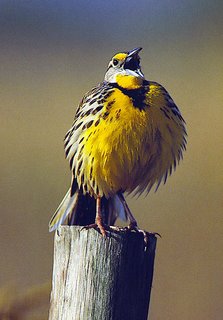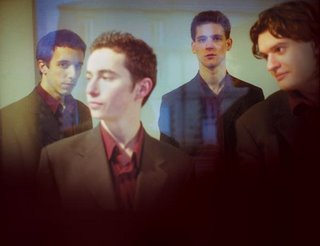Extolling the virtues of the Corcoran Musical Evening Series brings me, by now, dangerously close to self-plagiarism. Even after a point deduction for the insistent inclusion of the Peabody Trio, there simply isn’t a series that offers the same consistent quality of chamber music performers and – more importantly – no one has a better hand in picking young string quartets that measure up to the very highest standards. (The Jupiter, Dædalus, and Parker String Quartets, for example – and hopefully soon the Minetti Quartett.) So if you hadn’t heard of the Quatuor Ébène (I certainly hadn’t, before Friday night), there need not have been any worry about the excellence of the offered Haydn, Ravel, and Bartók.
 Hopefully Haydn will receive a grand 275th birthday season in 2007. He is a composer that the ear cannot overdose on andm wrote so much music of equally great merit that there would be no need to ever play a work twice in a year’s worth of performances. Meanwhile we will have to content with the bits and pieces of this quintessential Austrian composer that performers – usually string quartets – are willing to provide us with. Courtesy of the Quatuor Ébène came quartet op.64, no.5, the “Lark Quartet”, with its fun ride of a first violin part, especially in the short, all-out fourth movement. Vivace, indeed!
Hopefully Haydn will receive a grand 275th birthday season in 2007. He is a composer that the ear cannot overdose on andm wrote so much music of equally great merit that there would be no need to ever play a work twice in a year’s worth of performances. Meanwhile we will have to content with the bits and pieces of this quintessential Austrian composer that performers – usually string quartets – are willing to provide us with. Courtesy of the Quatuor Ébène came quartet op.64, no.5, the “Lark Quartet”, with its fun ride of a first violin part, especially in the short, all-out fourth movement. Vivace, indeed!Adagios in Haydn are always special (Menuetts not always). Sheer beauty and musical loveliness was the logical consequence of the Quatuor Ébène’s playing, which favored the lyrical aspect of the work over the gay and light mood that is Haydn’s trademark in most of his faster movements. (The late-comer management – understandable and lamentable necessity that it is – during the Haydn could probably have worked a bit more smoothly. Otherwise, there was no distraction from music that makes “charming” a bona fide compliment.)
Bartók’s Second Quartet at the end of a program would make sense; paraphrasing words of the Takáčs Quartet’s first violinist Edwin Dusinberre: ‘When you have finished playing a Bartók quartet and you gave it all, it seems like you just can’t play any music after that.’ And if you can program Bartók as the last piece anywhere, it’s at the Corcoran where the audiences come for the Bartók, rather than despite it. The quartet was moved ahead of the now concluding Ravel, however – and perhaps intermission is sufficient for both, musicians and audience, to recover from the riveting musical impact the Bartók quartets – the second, op.17 in this case – ideally have.
 Messrs. Colombet (first violin), Le Magadure (second violin), Herzog (viola), and Merlin (cello) bowed and plucked and strummed away at the work in the finest fashion. This was passionate and energetic playing (a particularly appropriate viola-like, boxy sound on Pierre Colombet’s G-string added atmosphere) and it paid huge dividends in each of the three movements. From aggression to wispy (in the sharp edged second movement - Allegro molto capriccioso) to lament and restrained anguish in the third (Lento), the Ébène-performance ticked off all the boxes that makes for superb Bartók. If elderly gentlemen stomping their feet during the applause is any indication, the audience appreciated it every bit as much.
Messrs. Colombet (first violin), Le Magadure (second violin), Herzog (viola), and Merlin (cello) bowed and plucked and strummed away at the work in the finest fashion. This was passionate and energetic playing (a particularly appropriate viola-like, boxy sound on Pierre Colombet’s G-string added atmosphere) and it paid huge dividends in each of the three movements. From aggression to wispy (in the sharp edged second movement - Allegro molto capriccioso) to lament and restrained anguish in the third (Lento), the Ébène-performance ticked off all the boxes that makes for superb Bartók. If elderly gentlemen stomping their feet during the applause is any indication, the audience appreciated it every bit as much.Ravel’s String Quartet in F Major is a load of good fun and great music. A strident, almost brash first movement (Allegro Moderato – Très Doux) ending on gentle notes led right into the impossibly enchanting pizzicato-dominated Assez Vif – Très Rhythmé that vacillates between pastoral sadness, ‘romping about’, and a numinous in-between. Très Lent is not supposed to be jolly, of course, and perhaps my own mood did its part in coloring the Quatuor Ébène’s performance, but I’ve never heard either this movement or, indeed, the entire quartet in such a sweet, gentle, and hauntingly melancholic light. Only more delicate pianos and pianissimos might have been an element to improve upon in these very fine renditions.
A Jazz encore (Chick Corea’s “Spain”) topped things off in style… jazz renditions for string quartet being one of the Quatuor Ébène’s specialties. (They played a concert of Jazz music at the Library of Congress on Saturday, which should have been great entertainment. Alas I had already agreed to see Queensrÿche, instead. A grave mistake, as it turned out.)

